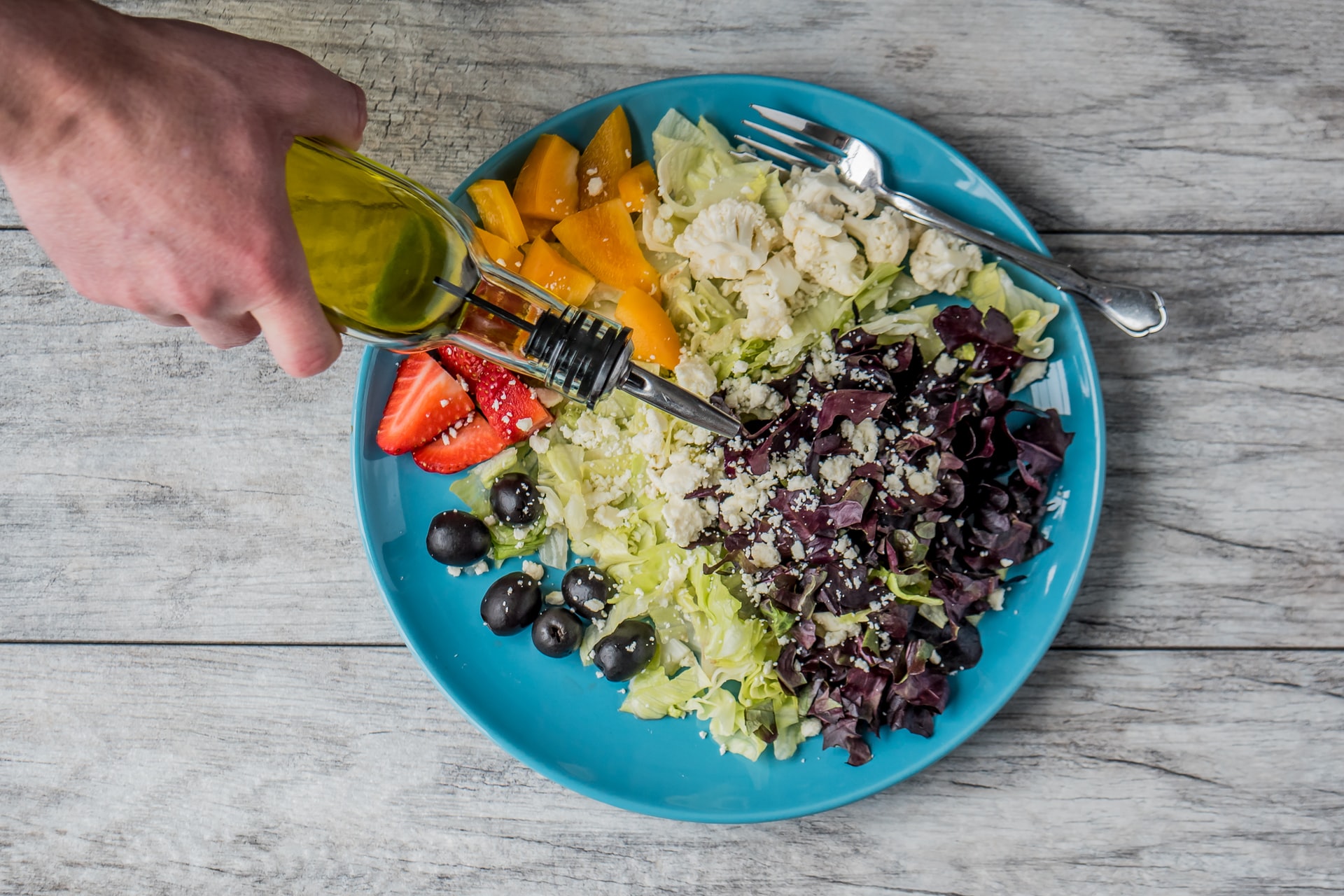Many of us spend some (or in my case quite a lot) of time thinking about what we are going to cook each day but probably much less time considering what our food will be cooked in.
We plan recipes, buy ingredients and aim for a balance of nutritious food which also tastes good in order to look after our wellbeing. With busy lives, it’s important that our food doesn’t take hours to prepare on a regular day and appeals to our families or the other people we’re cooking for too.
With all these factors to consider it’s not surprising that the oils or fats used to cook in are something which are often given little thought. I feel strongly about this subject and I want to draw your attention to the harmful effect on our health that refined oils can have and urge you to look more closely at what you’re cooking in.
My passion for nutrition and food led me to found Ondine Cuisine. The range of meticulously designed cookware I designed not only cooks beautifully but protects the nutrients in the meal. After having my first child I spent some time learning about the effects of toxicity in our home environments and was aware of the paradox of cooking carefully considered, nutritious meals in badly made cookware.
It is the same with the fats or oils your food is cooked in and it’s so important to consider this when preparing meals.
Refined foods
One of the cornerstones of my nutritional advice is to avoid refined or processed foods where possible. Simply put, these kinds of foods are lacking in many basic nutrients and far more likely to be harmful to health. Obesity and obesity related illnesses have shot up in recent years and my research has led me to understand that refined oils and sugars are one of the biggest factors driving this.
So how can you make more informed choices when it comes to what you’re cooking in?
Some of the most common brands of cooking oil on the shelves are refined and overly processed to the point where they are almost completely lacking in nutrients, and often in flavour too.
When any food is fried, the oil reacts with oxygen in the surrounding air and it’s molecular structure breaks down through oxidation. In refined oils this produces more of the toxic compounds called aldehydic lipid oxidation products (LOPs).
LOPs have been linked to a range of health concerns including cancer, heart disease, birth defects, raised blood pressure and inflammation.
The different types of oil
Olive oil
Olive oil which is labelled ‘extra virgin’ has not been excessively processed or refined so it gives you more nutritional benefits. Studies, such as this one published in Circulation, have also shown that a traditional Mediterranean diet which is enriched with virgin olive oils is linked to better heart health.
This oil works well in dressings and for low temperature cooking but it’s ‘smoke point’, literally the point at which it begins to smoke when heated, is not as high as other oils so it’s not suitable for cooking at high temperatures.
Avocado oil
Avocado oil is unrefined but it can be heated to higher temperatures than extra virgin olive oil so it’s useful for cooking over heat. As well as containing Vitamin E it has both monounsaturated and polyunsaturated fatty acids and has a subtle flavour which works with lots of dishes.
Although from a purely nutritional standpoint avocado oil may seem like a good option, the sudden spike in demand and subsequent mass clearing of land to use for growing this crop is really detrimental to the environment so it’s difficult to advocate the use of this, as I have in the past, with a clear conscience. It is possible to source sustainably sourced avocado oil such as from New Zealand brand Olivado.
Vegetable oils
Anything labelled vegetable oil should be treated with caution.
Categorising it this way means that the producers can use a mix of types of oil, including soy or corn, and substitute in whatever is available in the greatest quantity without relabelling. Vegetable oils are highly refined, affecting both the nutritional value and the flavour. Processed oils like this are often pushed way past their heat tolerance, becoming rancid during in the process.
Palm oil
You’ve probably heard the controversy around palm oil which is associated with more degradation of land for production. Most supermarkets and some large brands use certified sustainably sourced palm oil in their products but as this article from the charity Greenpeace points out, the criteria for sustainability are still not being met.
It isn’t ideal for cooking with in any case so I would avoid using palm oil.
Animal fats
Increasingly I’m beginning to look to animal fats for cooking. Things like lard, beef tallow or duck fat and butter or ghee were demonised in the past for their saturated fat content but more recent research which shows that eating lower levels of saturated fats doesn’t necessarily lower the risk of heart disease and the stability of these products means they can be used for cooking at higher temperatures. Choosing organic, grass-fed versions ensures that these fats are richer in vitamins and minerals.
Coconut oil
Although referred to as an oil this is actually a fat which melts to create a cooking oil. It is high in saturated fats but this doesn’t necessarily make it unhealthy, after animal fats this is one I use frequently and is a good alternative for vegans. Bear in mind that it’s not suited to very high temperature cooking.
The rule of thumb with all oils is to only heat them once. As this study shows, consuming coconut oil which has been repeatedly heated can release compounds which have a potentially carcinogenic effect.
In conclusion
Of course it’s not always possible to avoid refined oils completely. If you are eating out you’re unlikely to quiz the staff about the oils used in their kitchen.
As with everything relating to our health, it’s not the occasional but the everyday which has the long term effects and you can ensure that you take harmful refined oils out of your own home.
This article from Time magazine has more information on different types of oil.









